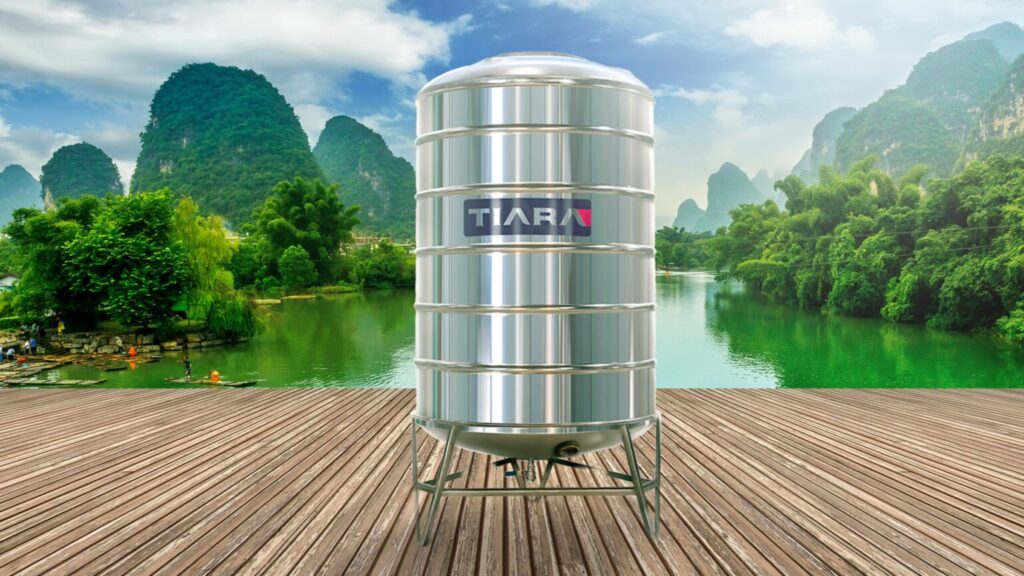
Introduction
In industrial settings, water tanks play a crucial role in ensuring the efficient and safe storage of water for various applications. Among the different materials used for water tanks, stainless steel stands out due to its superior durability, corrosion resistance, and hygiene standards. This case study explores how stainless steel water tanks are employed across various industries, highlighting their benefits and applications.
Overview of Stainless Steel Water Tanks
Stainless steel water tanks are known for their robustness and reliability. Made from alloys such as 304 or 316 stainless steel, these tanks are designed to withstand harsh conditions and provide long-term performance. The material’s resistance to corrosion, ease of cleaning, and non-reactivity with water make it an ideal choice for industrial applications where water quality and tank integrity are critical.
Applications in Various Industries
1. Food and Beverage Industry
In the food and beverage industry, stainless steel water tanks are essential for maintaining high hygiene standards and ensuring the safety of water used in production processes.
Dairy Processing: Stainless steel tanks are used to store milk and other dairy products. Their smooth, non-porous surfaces prevent bacterial growth and contamination. Tanks are also used in pasteurization processes where cleanliness and temperature control are crucial.
Brewing: Breweries use stainless steel tanks for fermenting and storing beer. The material’s resistance to corrosion and its ability to maintain temperature make it ideal for managing the fermentation process, ensuring product quality, and preventing contamination.
2. Pharmaceutical Industry
In the pharmaceutical industry, water quality is critical for manufacturing medicines and vaccines. Stainless steel water tanks are employed for:
Purified Water Storage: These tanks store purified water used in the production of pharmaceutical products. The non-reactive nature of stainless steel ensures that the water remains uncontaminated and meets stringent quality standards.
Cleaning and Sanitization: Stainless steel tanks are used for storing cleaning solutions and sanitizers. Their resistance to corrosion and ease of cleaning make them suitable for maintaining high standards of hygiene.
3. Chemical Industry
The chemical industry relies heavily on stainless steel tanks for storing and managing various chemicals and water:
Chemical Storage: Stainless steel tanks are used to store corrosive and reactive chemicals due to their excellent resistance to chemical reactions. This helps in preventing leaks and maintaining safety.
Water Treatment: Tanks made of stainless steel are employed in water treatment facilities for storing treated water and chemicals used in the treatment process. Their durability ensures long-term performance even under harsh conditions.
4. Agricultural Industry
In agriculture, stainless steel water tanks are utilized to support irrigation systems and livestock care:
Irrigation: Stainless steel tanks store water used for irrigation, ensuring that the water remains clean and free from contaminants. Their robustness helps in managing large volumes of water efficiently.
Livestock: For farms with livestock, stainless steel tanks are used to provide clean drinking water. Their resistance to rust and ease of cleaning are crucial for maintaining water quality and animal health.
5. Manufacturing and Industrial Facilities
Stainless steel water tanks are also prevalent in various manufacturing and industrial environments:
Cooling Systems: Many industrial facilities use stainless steel tanks in cooling systems. The tanks store water used in cooling towers and other systems, benefiting from stainless steel’s resistance to high temperatures and chemicals.
Fire Protection Systems: Stainless steel tanks are used in fire protection systems to store water for emergency use. Their durability and reliability are vital for ensuring that the water supply remains intact and accessible during emergencies.
Conclusion
Stainless steel water tanks are a vital component in numerous industrial applications, from food and beverage processing to chemical storage and agricultural irrigation. Their superior durability, hygiene standards, and resistance to corrosion make them an ideal choice for industries where water quality and tank integrity are crucial. By leveraging the benefits of stainless steel, industries can ensure efficient water management, maintain high standards of safety, and support sustainable practices.


